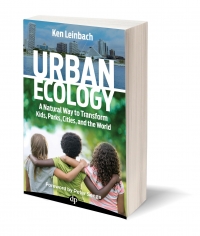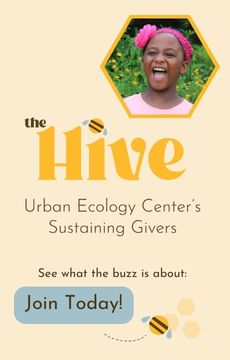Professors have reached out to use Urban Ecology as a case study for their community development courses. Millennials have shared it with friends for the life lessons it imparts. The CEO of Cuauhtémoc Moctezuma Brewery (part of Heineken) let us know he is sharing with his peers as he sees it as a book on leadership.
The point is, while Urban Ecology was designed to inspire educators, urban planners or community leaders to create an Urban Ecology Center in their own cities, it’s much more than this. And it just may be something you’ll want to read or give away.
Here is a modified excerpt to show you what unexpected lessons you may receive from Urban Ecology. Think of it as a shameless enticement to purchase the book.

Campfire Metaphor
There were perhaps a dozen of us, from about as many different states. We were young and idealistic, and we wanted to save the world. We had been brought together as summer interns to work for the Bureau of Land Management (BLM) in Grand Junction, Colorado.
Every evening, we’d come home to our trailers after a grueling ten-hour day and try to sleep. It was not the heat that kept us up most nights but the fights, the squabbles, and the occasional need for police intervention in the neighborhood surrounding our trailers. Domestic violence, substance abuse, and kids crying were the norm.
Some of the young women from our team got pamphlets from the local social service agencies in town. They enlisted a few of us, myself included, to knock on doors and spread the good word about resources that might be available to them. You can imagine how well we were received. “Who are you to tell anyone what to do?” In so many ways, we in the BLM trailers were from another universe.
Then a new idea emerged. It was an idea not to “fix” anyone or to change anyone, but to simply be good neighbors.
One of our clan played the guitar. A few people in the group could sing. I had worked at summer camps and knew a few stories. We decided to host a Friday evening campfire. We put up a poster by the pool, created a few flyers to spread around and we promised that there would be s’mores involved. The kids who played basketball with us in the evenings helped spread the word — and people showed up! Not in huge numbers at first, but once the singing started and people heard laughter and clapping others joined us. Soon, a pretty good gathering of the community was sitting around the campfire. That was amazing, because there were people showing up whom we had never seen before.
We did those campfire events more than once, and we noticed engagement grow. It might have been our imagination, but it seemed there was more laughter during the week and less shouting and fighting at night.
One day, the woman in our group who had led the charge to get the social service pamphlets came into our trailer all excited. Two women from the neighborhood had approached her for some help! Trust was building. Community was growing. Hosting the campfires and intending to simply be good neighbors turned out to be an effective path for building trust so we could help with getting at some deeper issues.
The Third Way
That campfire story [exemplifies] something called the third way. The third way refers to an angled approach to getting at an important issue. It’s a little like tacking when one’s sailing destination is directly upwind. The third way, while not always intuitively obvious, is often a very effective approach to getting where you want to go.
We often think of the Urban Ecology Center programming as being a third way of fulfilling our mission, along with reaching many other stated goals. Connecting to nature, being outside together (like around a campfire), can draw people from many walks of life into a community with a similar focus. And it can innocently put people at ease. That, over time, enables other conversations and changes to occur that have deeper, more profound impacts.
---------------------------
See what I mean? That little excerpt shows how our book can (with your help) engage a wide variety of people. Help us spread the word of a third way.





